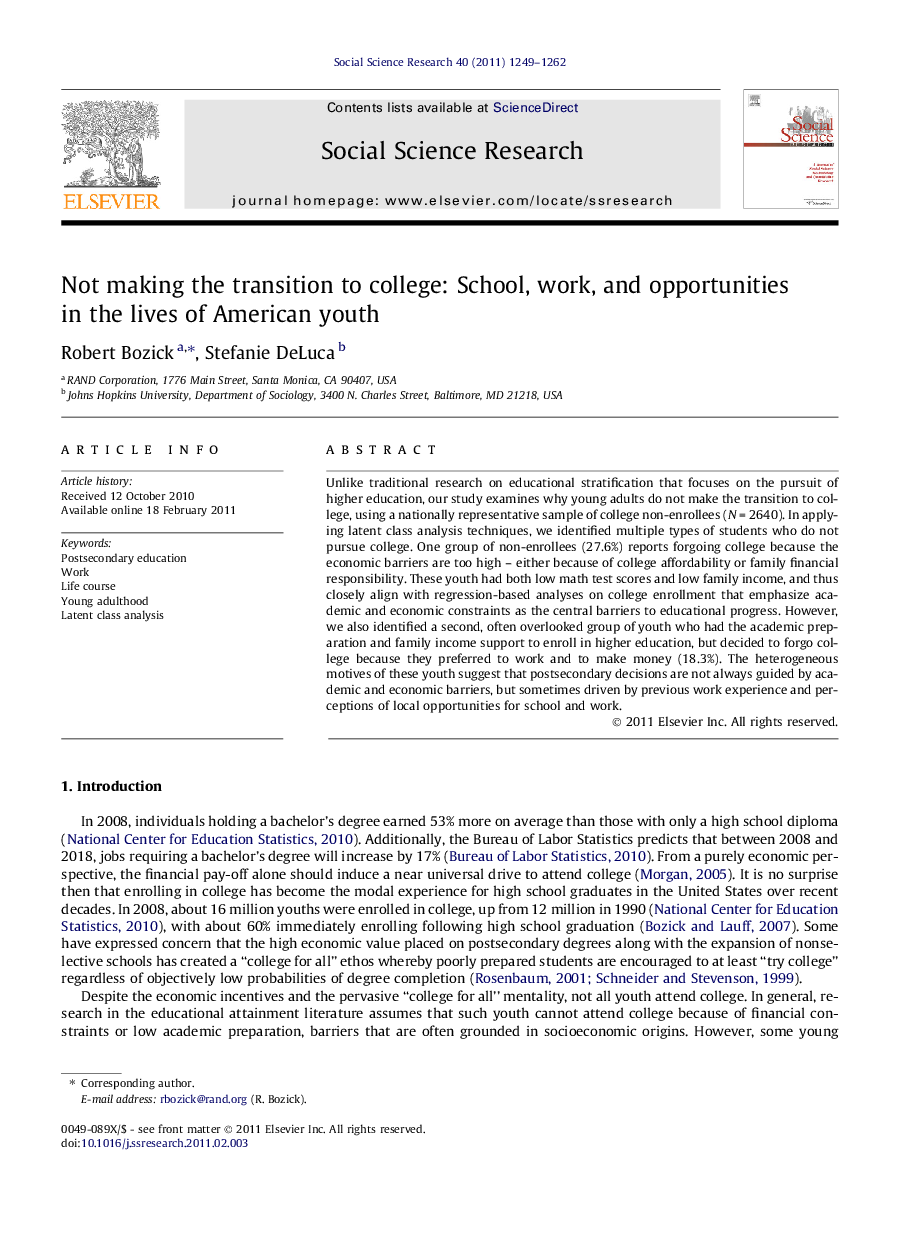| Article ID | Journal | Published Year | Pages | File Type |
|---|---|---|---|---|
| 956157 | Social Science Research | 2011 | 14 Pages |
Unlike traditional research on educational stratification that focuses on the pursuit of higher education, our study examines why young adults do not make the transition to college, using a nationally representative sample of college non-enrollees (N = 2640). In applying latent class analysis techniques, we identified multiple types of students who do not pursue college. One group of non-enrollees (27.6%) reports forgoing college because the economic barriers are too high – either because of college affordability or family financial responsibility. These youth had both low math test scores and low family income, and thus closely align with regression-based analyses on college enrollment that emphasize academic and economic constraints as the central barriers to educational progress. However, we also identified a second, often overlooked group of youth who had the academic preparation and family income support to enroll in higher education, but decided to forgo college because they preferred to work and to make money (18.3%). The heterogeneous motives of these youth suggest that postsecondary decisions are not always guided by academic and economic barriers, but sometimes driven by previous work experience and perceptions of local opportunities for school and work.
